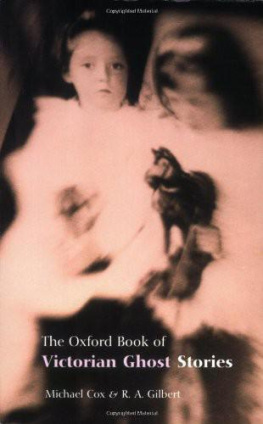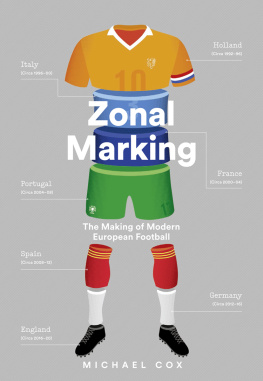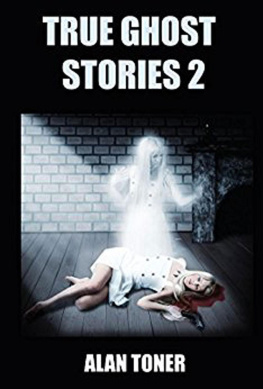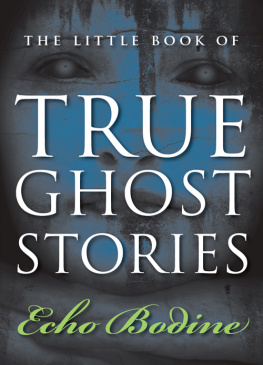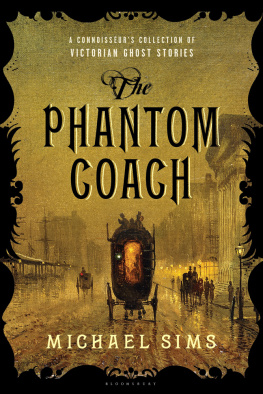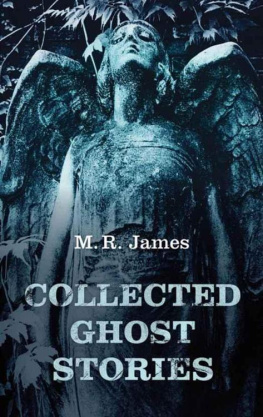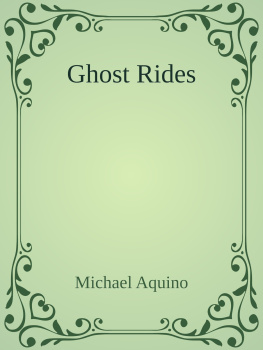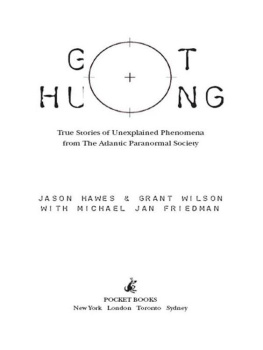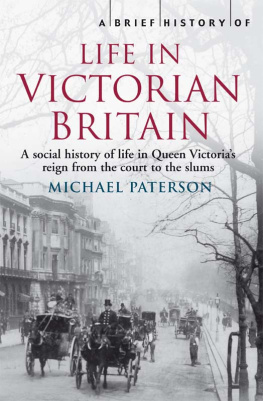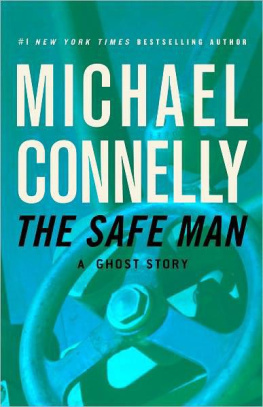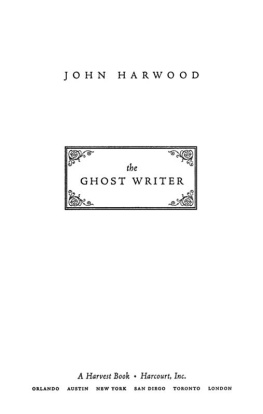Michael Cox - The Oxford book of Victorian ghost stories
Here you can read online Michael Cox - The Oxford book of Victorian ghost stories full text of the book (entire story) in english for free. Download pdf and epub, get meaning, cover and reviews about this ebook. publisher: Oxford University Press, genre: Art. Description of the work, (preface) as well as reviews are available. Best literature library LitArk.com created for fans of good reading and offers a wide selection of genres:
Romance novel
Science fiction
Adventure
Detective
Science
History
Home and family
Prose
Art
Politics
Computer
Non-fiction
Religion
Business
Children
Humor
Choose a favorite category and find really read worthwhile books. Enjoy immersion in the world of imagination, feel the emotions of the characters or learn something new for yourself, make an fascinating discovery.
- Book:The Oxford book of Victorian ghost stories
- Author:
- Publisher:Oxford University Press
- Genre:
- Rating:4 / 5
- Favourites:Add to favourites
- Your mark:
- 80
- 1
- 2
- 3
- 4
- 5
The Oxford book of Victorian ghost stories: summary, description and annotation
We offer to read an annotation, description, summary or preface (depends on what the author of the book "The Oxford book of Victorian ghost stories" wrote himself). If you haven't found the necessary information about the book — write in the comments, we will try to find it.
The Oxford book of Victorian ghost stories — read online for free the complete book (whole text) full work
Below is the text of the book, divided by pages. System saving the place of the last page read, allows you to conveniently read the book "The Oxford book of Victorian ghost stories" online for free, without having to search again every time where you left off. Put a bookmark, and you can go to the page where you finished reading at any time.
Font size:
Interval:
Bookmark:
The Oxford Book of VICTORIAN GHOST STORIES
Michael Cox and R. A. Gilbert are the editors of the highly successful Oxford Book of English Ghost Stories.
Michael Cox was formerly senior commissioning editor with the Oxford University Press. He is the author of M. R. James: An Informal Portrait and has edited two selections of M. R. James's ghost stories and an illustrated selection of the ghost stories of J. S. Le Fanu. He also edited The Oxford Book of Victorian Detective Stories and The Oxford Chronology of English Literature.
R. A. Gilbert is a well-known antiquarian bookseller and world authority on the historiography of esoteric thought in general and on the occult movements of the nineteenth century in particular. Publications include A. E. Waite: Magician of Many Parts and (as co-editor) Selected Letters of Arthur Machen.
ACKNOWLEDGEMENTS
Our thanks are due to the following individuals and institutions for advice and assistance received during the compilation of this anthology: Richard Dalby and Raphael Shaberman for their bibliographical help; Dr Glen Cavaliero and Deirdre Toomey; the staff of the Cambridge University Library and the Bodleian Library, Oxford.
CONTENTS
Introduction
The Old Nurse's Story (1852) Elizabeth Gaskell 1
An Account of Some Strange Disturbances in Aungier Street (1853) J.S.LEFANU 19
The Miniature (1853) J. Y. AKERMAN 37
The Last House in C-Street (1856) dinah mulock [MRS CRAIK] 44
To be Taken with a Grain of Salt (1865) charles dickens 55
TheBotathen Ghost (1867) R. S. HAWKER 65
The Truth, the Whole Truth, and Nothing but the Truth (1868) RHODA BROUGHTON 74
The Romance of Certain Old Clothes (1868) HENRY JAMES 83
Pichon & Sons, of the Croix Rousse (1868) ANON. 100
Reality or Delusion? (1868) MRS HENRY WOOD 115
Uncle Cornelius His Story (1869) GEORGE MACDONALD 130
The Shadow of a Shade (1869) TOM HOOD 150
At Chrighton Abbey (1871) MARY ELIZABETH BRADDON 163
No Living Voice (1872) THOMAS STREET MILLINGTON 190
Miss Jeromette and the Clergyman (1875) WILKIE COLLINS 198
The Story of 'Clifford House (1878) ANON. 218
Was it an Illusion? (1881) Amelia b. Edwards 239
The Open Door (1882) CHARLOTTE RIDDELL 256
The Captain of the 'Pole-star' (1883) ARTHUR CONAN DOYLE 283
The Body-Snatcher (1884) R. L. STEVENSON 303
The Story of the Rippling Train (1887) MARY LOUISA MOLESWORTH 319
At the End of the Passage (1890) RUDYARD KIPLING 328
'To Let'(1896) B. M. CROKER 346
John Charrington's Wedding(1891) E. NESBIT 360
The Haunted Organist of Hurly Burly (1891) ROSA MULHOLLAND 367
The Man of Science (1892) JEROME K.JEROME 379
Canon Alberic's Scrap-book (1895) M.R.JAMES 385
Ferry Bundler (1897) W.W.JACOBS 396
An Eddy on the Floor (1899) Bernard Capes 403
The Tomb of Sarah (1900) F. G. LORING 431
The Case of Vincent Pyrwhit (1901) BARRY PAIN 442
The Shadows on the Wall(1902) MARY E. WILKINS 445
Father Macclesfield's Tale (1907) R. H. BENSON 459
Thurnley Abbey (1908) PERCEVAL LANDON 466
The Kit-bag (1908) ALGERNON BLACKWOOD 480
Sources 490
Select Chronological Conspectus of Ghost Stories, 1840-1910 493
INTRODUCTION
For those who look back on it, the Victorian age seems to be invested with a peculiar quality of differenceheightened by its relative proximity in timethat is reflected in its ghosts. It was an age shaped, perhaps more than any other previous period, by the forces of transition. The predominantly feudal and agrarian past had disintegrated under the action of democracy and industrialism; and yet the final consequences of these truly revolutionary processes remained unclear. All that people knew was that a gulf was opening up with the past. As Thackeray noted in i860: 'Your railroad starts the new era, and we of a certain age belong to the new time and the old one.'1 With the shadow of change falling across virtually every area of life and thought, the receding past became a focus for anxiety, and in literature the ghost story offered a way of anchoring the past to an unsettled present by operating in a continuum of life and death. In the ghost story, obligations do not cease with death, and the past is never a closed book. What has been can be again, though often terribly transformed. For a progressive age (progressing to what?), the idea of a vindictive past held an especial potential for terror.
In personal terms, ghosts were obvious, though still potent, images of the lost pastpast sins, past promises, past attachments, past regretsand could be used to confront, and exorcize, the demons of guilt and fear. For almost the whole of the Victorian period the ghost story is of a piece: traditional in its forms and intentions, but energetically inventive and infused with a relish of the supernatural that parallels the more general Victorian fascination with the trappings of deaththe dark, extravagant splendour of the funeral, the baroque richness of the cemetery, the guilt-laden luxury of mourning. And then, at its most basic, the function of most Victorian ghost stories, like all similar fictions, was simply to produce what Michael Sadleir called 'the pleasurable shudder''a horror which we know does notbut none the less conceivably mightthreaten ourselves'.2
Our aim in this anthology is to map out the development of the Victorian ghost story from c.1850. Although there are earlier examples of the form (notably the early stories of J. S. Le Fanu), it is in the 1850s that the distinct, anti-Gothic character of the Victorian ghost story begins to emerge. Where the Gothic tale of terror had been indulgently heroic and ostentatiously fictitious, the Victorian ghost story was typically domestic in tone and inclined to blur the boundaries between fact and fiction. Our first example, Elizabeth Gaskell's 'The Old Nurse's Story', which dates from 1852, exhibits essential Victorian qualitiesnot least in its homely detail and disciplined treatment of supernatural eventsthat are not often apparent in ghost stories of the 1830s and 1840s.
We have not felt obliged to terminate the collection strictly at 1901. An exchange in M. R. James's story 'A Neighbour's Landmark' (published in 1925) both emphasizes the 'otherness' of the Victorian period and justifies our somewhat elastic definition of 'Victorian':
'You begin in a deeply Victorian manner,' I said; 'is this to continue?'
'Remember, if you please,' said my friend, looking at me over his spectacles, 'that I am a Victorian by birth and education, and that the Victorian tree may not unreasonably be expected to bear Victorian fruit.'
'Victorian by birth and education', then, will be the basic qualification for inclusion; publication dates are consequently less important if it is clear that this broad condition can be met. All the authors represented here are self-evidently fruits of the Victorian tree.
As for what we understand by a ghost story, the five criteria followed for The Oxford Book of English Ghost Stories remain applicable on the whole to the principles of selection followed in the present volume:
Each story should reveal to the reader a spectacle of the returning dead, or their agents, and their actions; there must be a dramatic interaction between the living and the dead, more often than not with the intention of frightening or unsettling the reader; the story must exhibit clear literary quality... there must be a definable Englishness about the story ... and finally ... the story must be relatively short.
The last requirement has unfortunately eliminated several otherwise excellent stories (for instance, we have been unable to justify including anything by the prolix Margaret Oliphant). We have also tried to balance well-known landmarks of the genre with lesser-known examples and one or two genuine rarities.
Font size:
Interval:
Bookmark:
Similar books «The Oxford book of Victorian ghost stories»
Look at similar books to The Oxford book of Victorian ghost stories. We have selected literature similar in name and meaning in the hope of providing readers with more options to find new, interesting, not yet read works.
Discussion, reviews of the book The Oxford book of Victorian ghost stories and just readers' own opinions. Leave your comments, write what you think about the work, its meaning or the main characters. Specify what exactly you liked and what you didn't like, and why you think so.

